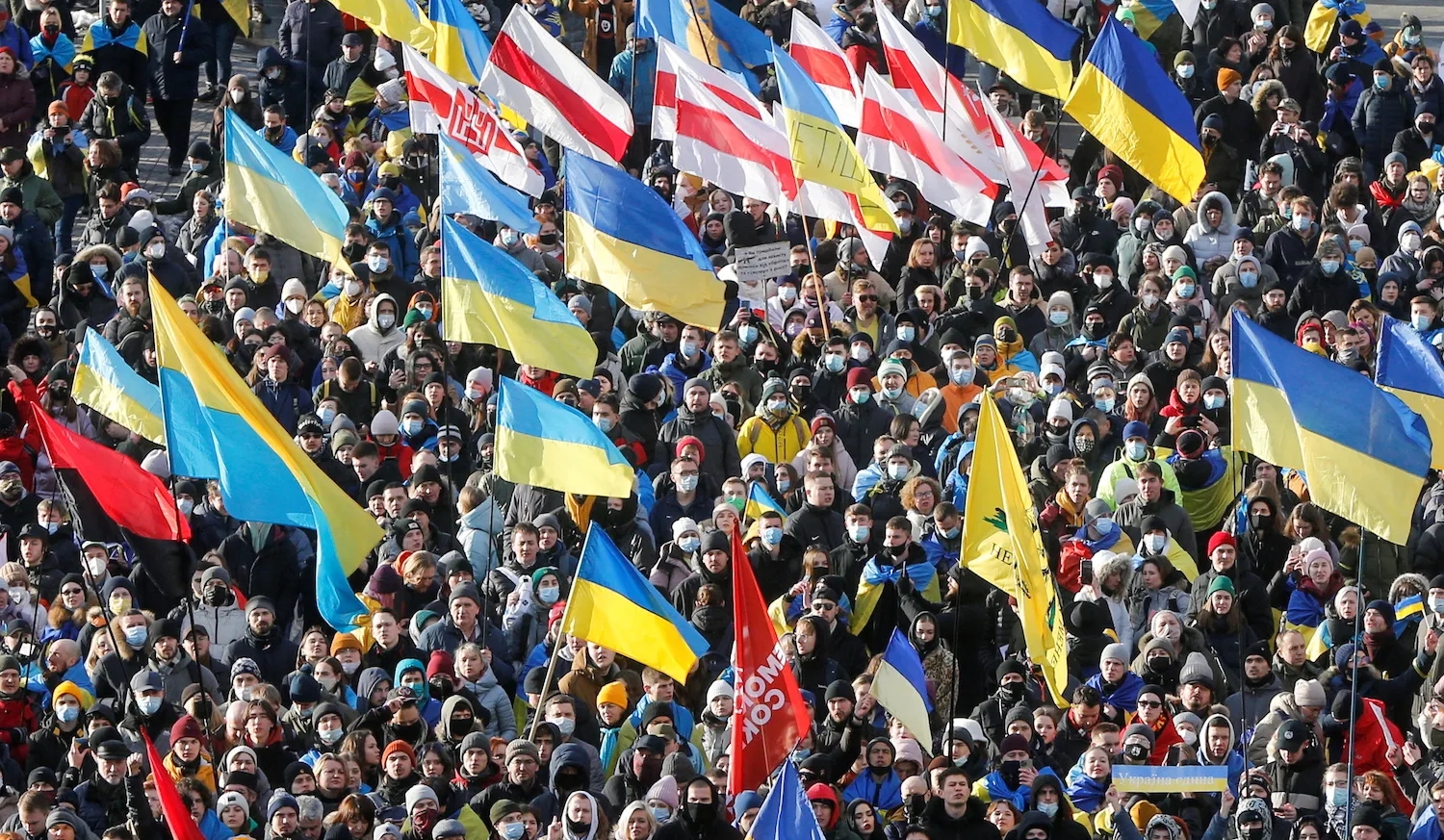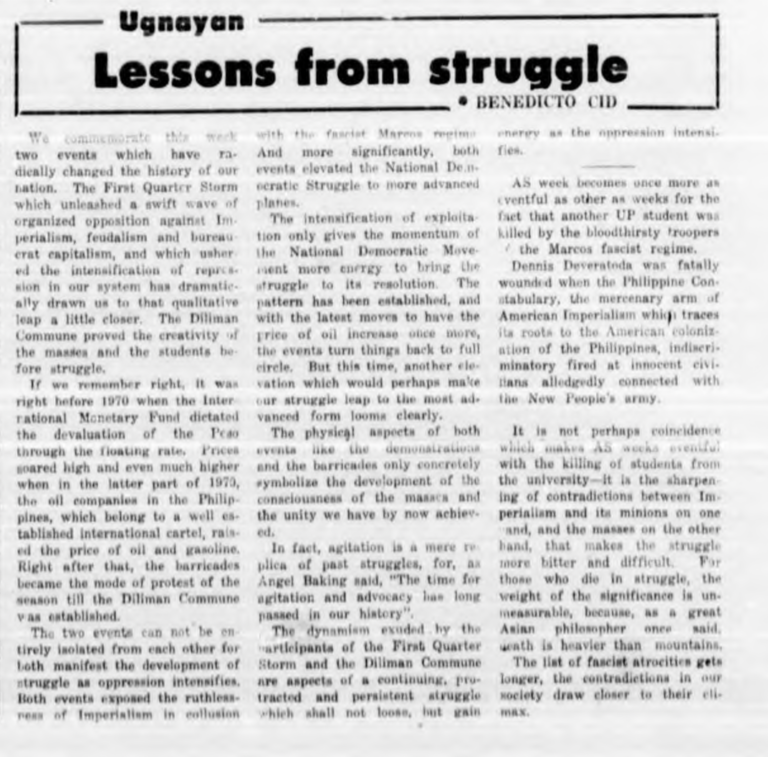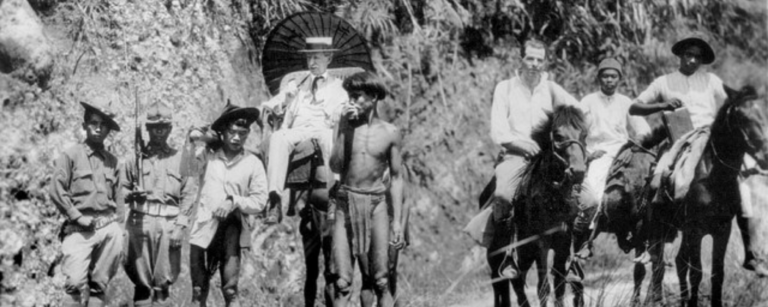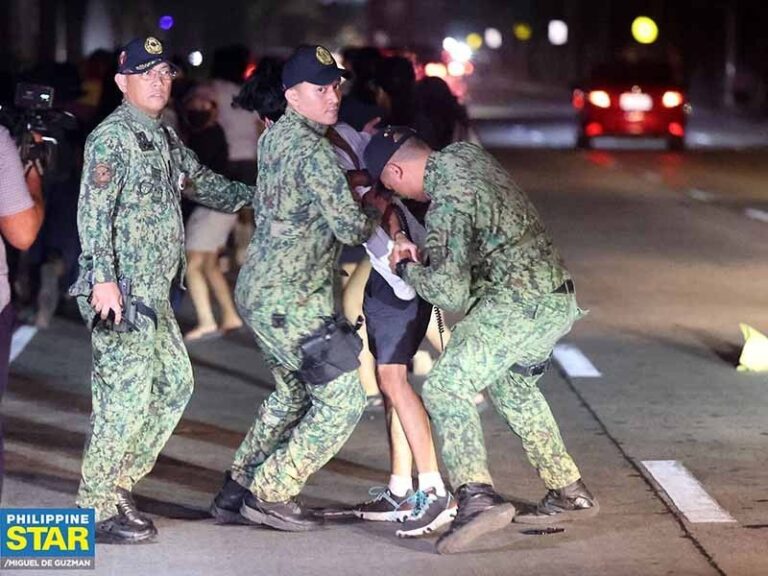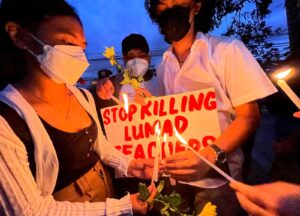
In a surprise broadcast statement on Feb. 24, Russian dictator Vladimir Putin, couched in his euphemism for aggression, launched a “special military operation” in former Soviet state Ukraine after years of ethnic and economic tension.
The impact of this geopolitical crisis is menacing the global economy, shaking financial markets, and compounding the shocks on the global economy due to the COVID-19 pandemic.
Weeks ago, Russia was doing a bumper trade in energy, shipping millions of barrels of oil every day. Western brands, on the other hand, were busy running businesses in Russia, and investors were lending to its offshore companies.
Now, the financial retaliation it has unleashed is wreaking havoc on Russia’s economy and to the rest of the world, as prices of oil started to spiral amidst financial sanctions imposed by the US and its allies who effectively commands the world market.
Russia’s imperialist plans and the US-NATO’s warmongering with Zelensky’s far-right regime is fueled by economic competition between the two capitalist blocs. This has been detrimental to the struggle for self-determination in the Donesk-Luhansk regions and economic and trade activity especially in Europe.
But with the impending sanctions against Russia, part of this is shooting down the US$10 billion Nord Stream 2, a gas pipeline that is supposed to deliver natural gas from Russia to Germany. Given Europe’s reliance on Russia’s natural gas, it will undoubtedly bear the crunch.
Weighing its effects on the West, the key question now is how would this affect the Philippines?
True enough, the Philippines may be far from Ukraine, but what is going on in Eastern Europe has an impact on the rest of the world. To this day, even the Philippines continues to reel from the devastating economic impacts of the pandemic amidst the Ukraine invasion — effectively erasing the gains the Duterte regime falsely boasted over the years.
As collateral results of the ongoing crossfire between Russia and Ukraine, one of the immediate impacts is the oil price hike in the global market. Every price increase is an added burden to the poor, eroding the purchasing power of millions of consumers and further complicating economic recovery, especially for the marginalized.
“These price hikes have resulted in increased cost of production and lower-income for farmers, fisherfolk, and transportation workers who have nothing to bring home to their families now,” asserted Rafael Mariano, chairperson of Anakpawis Party-list.
Indeed, this is to stress that while the Philippine government said that it will provide fuel subsidies for the transport sector, fisherfolk and farmers, and the affected sectors, there is an urgency to suspend excise taxes on oil products, imposed by anti-poor legislation like the TRAIN Law and VAT.
To cushion the burden to the affected sectors and help jeepney drivers and operators withstand the rising costs of fuel, the national government has to swiftly address these problems and expedite the release of fuel subsidies, suspend the excise tax and VAT on petroleum products, and distribute fuel vouchers now.
The shortcomings of the Duterte regime underline the nation’s predicament over the oil price hike, which is not even the projected highest amount it could post yet. This is just the beginning, as oil prices increase, so do other products and services that rely heavily on oil.
Worse, oil price hikes are always followed by a price increase in almost all commodities — may it be prices of basic commodities such as rice and meat, or those transported by gas-powered vehicles from faraway farms to the markets. All these are on top of currency depreciation and worsening conditions of the masses and their quality of life.
Moreover, the government should nationalize its oil industries such as Ramon Ang-owned Petron, Uy-owned Malampaya gas field, and Chinese-occupied West Philippine Sea. Building state-owned national industries will fuel more economic development. They should also venture on pro-people energy generation alternatives as the climate crisis worsens.
If Russia further escalates its Ukraine invasion and the West continues to brutally implement economic sanctions, the economic state of import-dependent countries like the Philippines will definitely exacerbate.
An immediate end to the conflict is in the Filipinos’ best interests.
Ferdinand “Bongbong” Marcos Jr., who was, again and again, absent during the CNN debate and other major presidential forums and interviews, does not have a clear stand on the issue.
The dictator’s son and namesake first stated that there was no need for him to take a stand on the issue because the Philippines is not directly involved in the conflict — yes, the leading presidential candidate, who also falsely claims to be an “economist”, implied that Russia’s invasion of Ukraine is none of our business.
Later, with a little research and online press release, Marcos Jr. shifted gears and said that Russia should give due regard to Ukraine’s sovereignty and the safety of their people.
It is, and it must always be the welfare of Filipinos to be taken into account for the Philippines to take a stand over Russia’s outright belligerence in Ukraine’s territory and condemn the US-NATO warmongering.
Recently, the Department of Foreign Affairs (DFA) issued a statement of condemnation of Russia’s actions. As a country that has been under dictatorial rule for years, the Philippines must know that in voting to support Ukraine, it must affirm its commitment to “global freedom, democracy and rights,” as well as choose democracy over autocracy.
Further, Manila-based ambassadors of 30 countries, in a joint statement, quote author and Holocaust prisoner Elie Wiesel: “We must always take sides. Neutrality helps the oppressor, never the victims. Silence encourages the tormentor, never the tormented.”
Despite this, the DTI said the country’s trade with Russia and Ukraine would remain. “We continue commercial relations with Russia, Ukraine, and the West,” said Lopez. Ukraine is the Philippines’ 40th trading partner, with around P10 billion worth of trade. The Philippines’ trade with Russia, on the other hand, amounts to around P10 trillion.
We’re now headed into the third week of Russia’s war on Ukraine. The long-feared Russia’s invasion of Ukraine has been costing us lives and economic crisis.
The rest of the globe will be affected by what threatens to become Europe’s greatest war since World War II. Yet, the Philippines should resist and avoid being used as a pawn or proxy in their proxy war at all costs.
We should avoid being on the frontline of any armed confrontation or rivalry resulting from the giants’ power struggle, which is not to our advantage, and not in line with the country’s core national interests. We just can’t afford it!
Soon it will be Lent, the period during which European Orthodox Christians fast, reflect, and prepare for Easter. But Putin as a devout Christian won’t jibe with all the bloodshed while Christians over the US-Western Europe bloc still won’t repent the wars they fought in the name of profit.
The worsening Russia-Ukraine crisis should fuel our resistance to wars of imperialist aggression in support of fellow war-torn citizens everywhere and against a harsher crisis by a far-right populist wave.
Featured image courtesy ofREUTERS.

